Joint hackathon with Kyushu Institute of Technology brings distant campuses closer
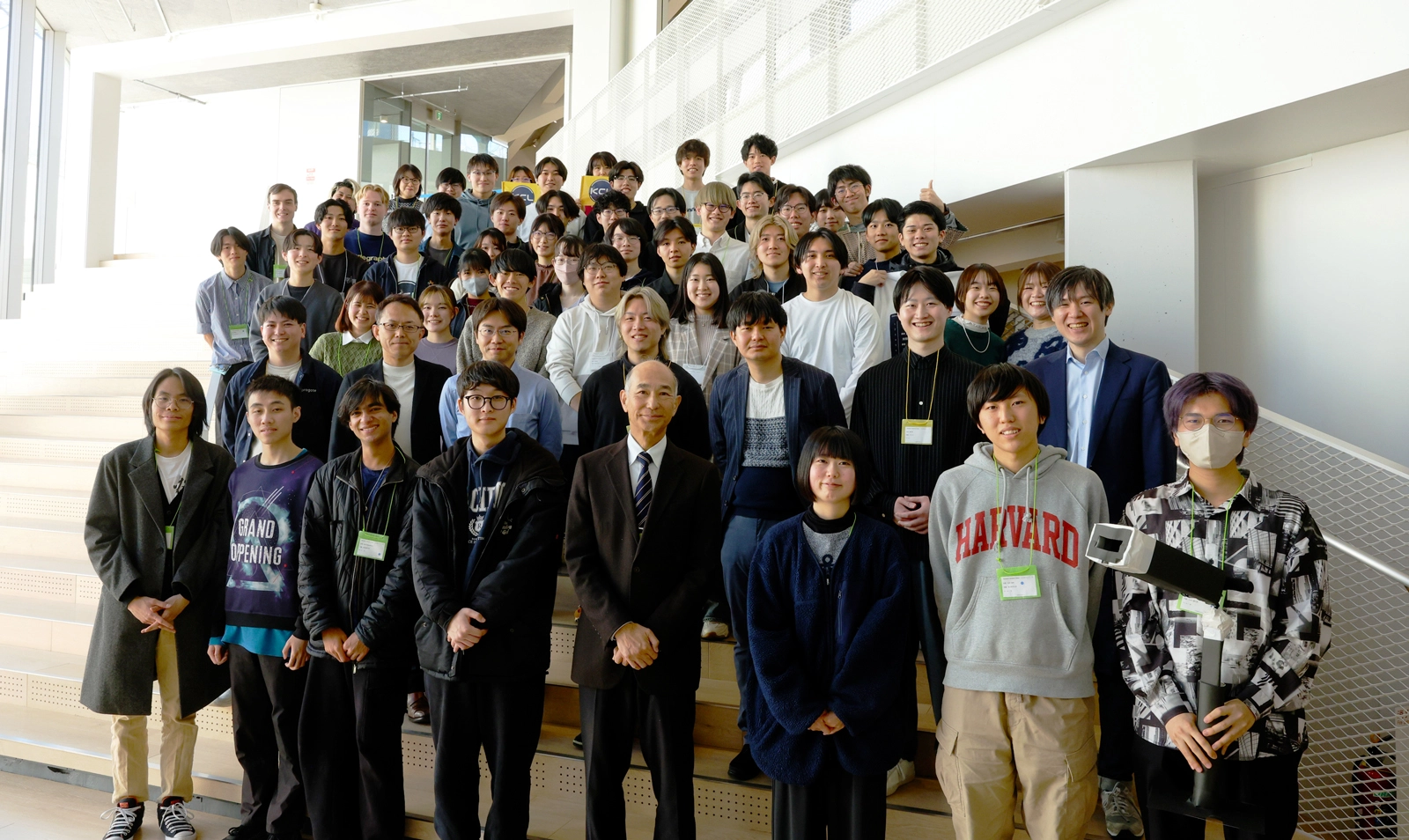
Institute of Science Tokyo (Science Tokyo) and Kyushu Institute of Technology (Kyutech) co-hosted a hackathon at Hisao & Hiroko Taki Plaza on Ookayama Campus from March 5 to 7, 2025. The event, which brought together students from both universities for three days of innovation and collaboration, not only tested participants’ technical and creative skills, but also provided a valuable opportunity for exchange and networking.
This joint initiative was launched following the signing of a memorandum of understanding between Science Tokyo and Kyutech in December 2023 to promote collaboration in industry-academia partnerships and development of talent in science and technology
Student organizations — Taki Plaza Gardener group from Science Tokyo and Kyutech Code Lab (KCL) — worked together to plan and manage the event, beginning preparations last summer.
The theme of the hackathon, “Cross-Border and Exchange,” highlighted the geographical distance between the two universities. Participants were tasked with creating products that would promote exchange and connection between the two universities, regardless of physical separation.
Opening ceremony, teams at work
After an online kick-off event on February 28, the main hackathon took place in person from March 5 to 7.
At the opening ceremony, Science Tokyo’s Executive Vice President for Education Hidetoshi Sekiguchi gave opening remarks. This was followed by a message from fan-mily Inc. CEO Hidehiko Matsuda, who is also an alumnus of the former Tokyo Institute of Technology, one of Science Tokyo’s predecessors prior to its formation in October 2024.
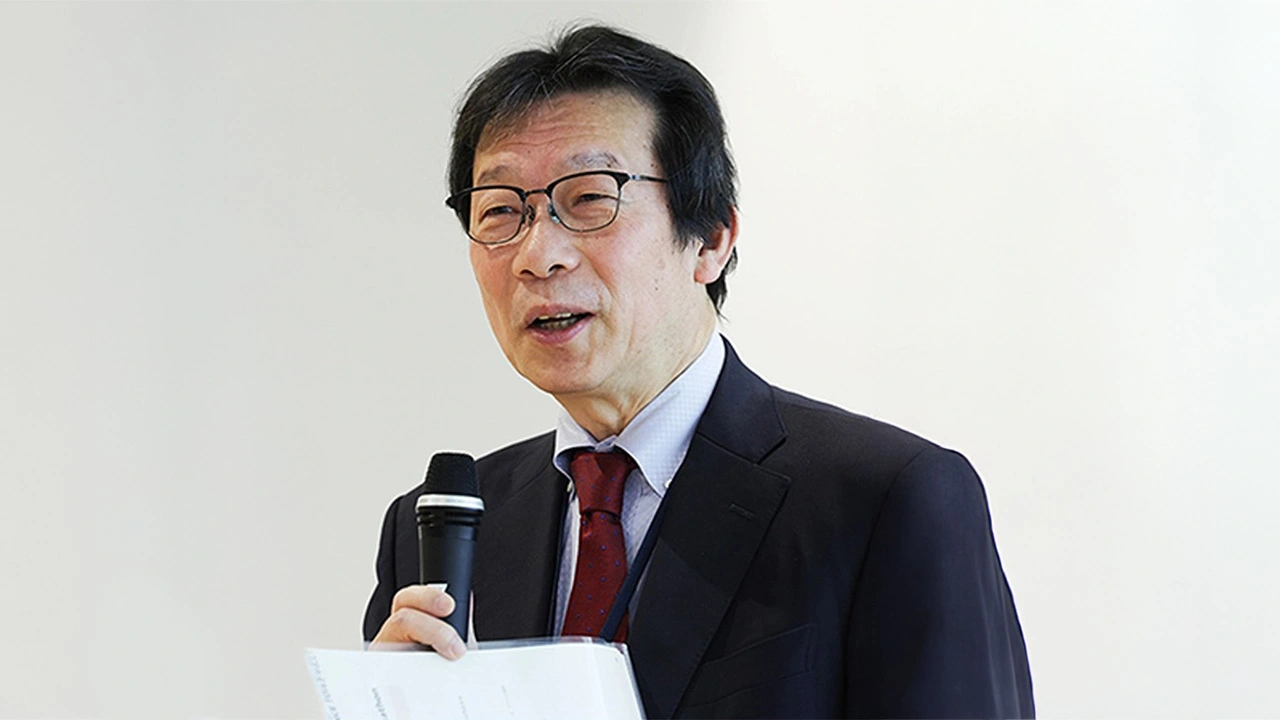
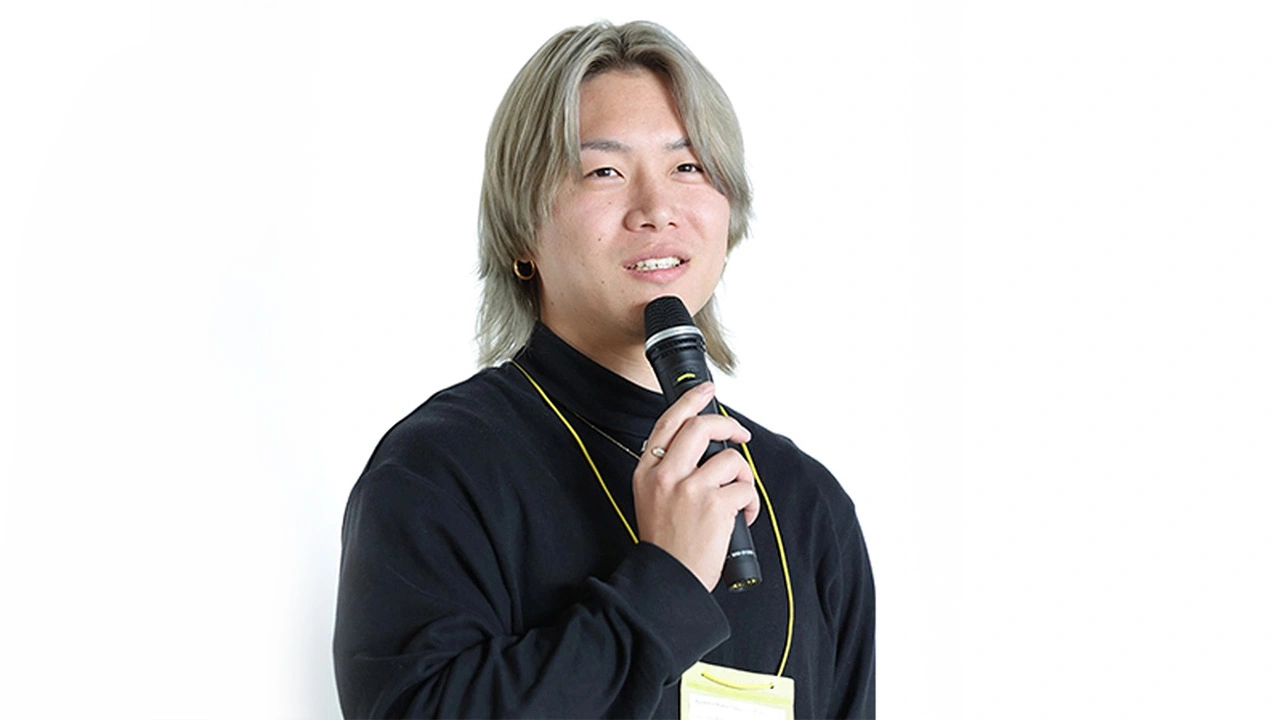
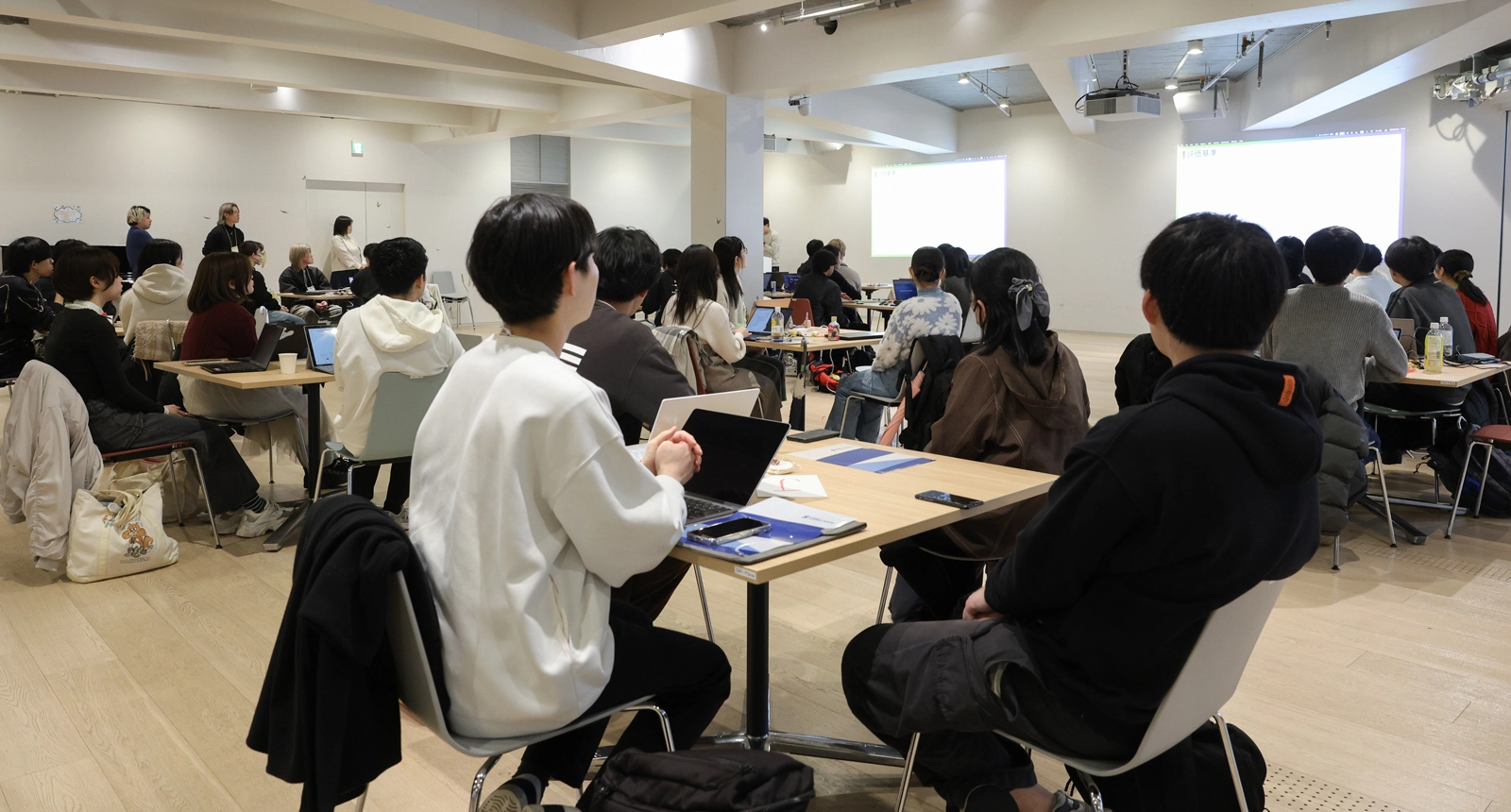
During the hackathon, a total of 43 student participants — 22 from Science Tokyo and 21 from Kyutech — formed 12 teams based on their interests. Teams consisted of three or four members and included both mixed-institute and single-institute groups.
After an icebreaker, the teams jumped right into their projects. They worked intensively toward mid-event presentations on the second day, and then continued refining their products until the final presentations on the third day. When the participants encountered challenges, they received valuable guidance from student mentors and representatives from sponsoring companies. Discussions were dynamic and focused, with teams maintaining high levels of energy and concentration.
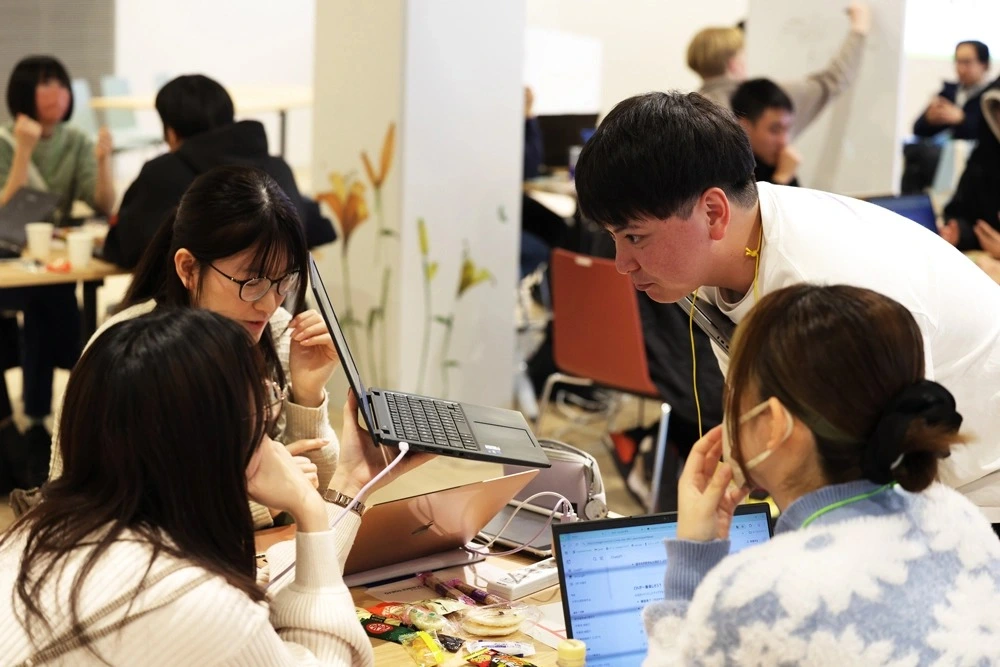
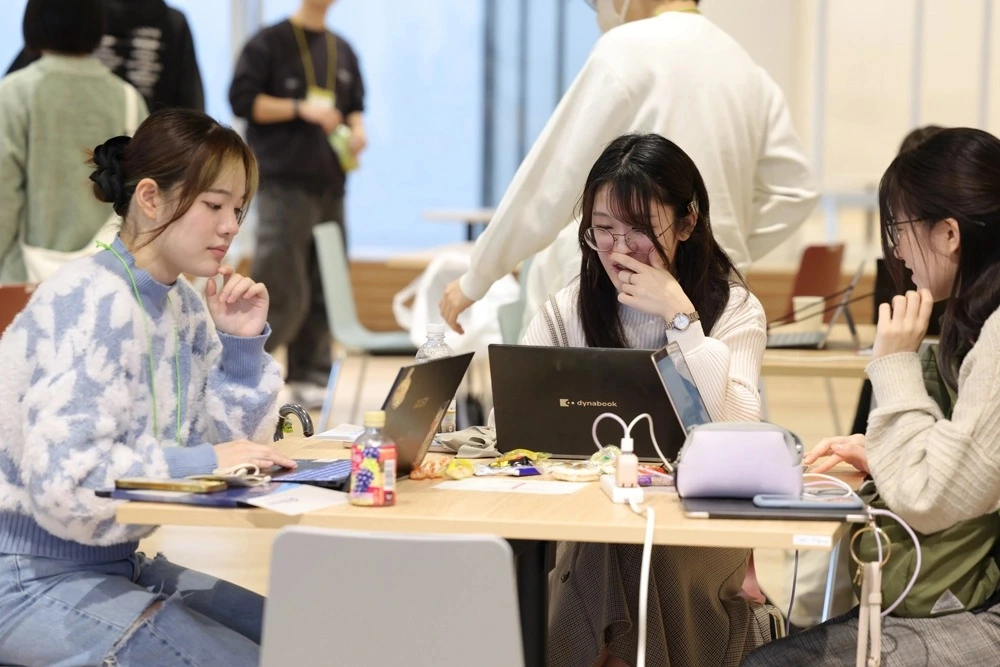
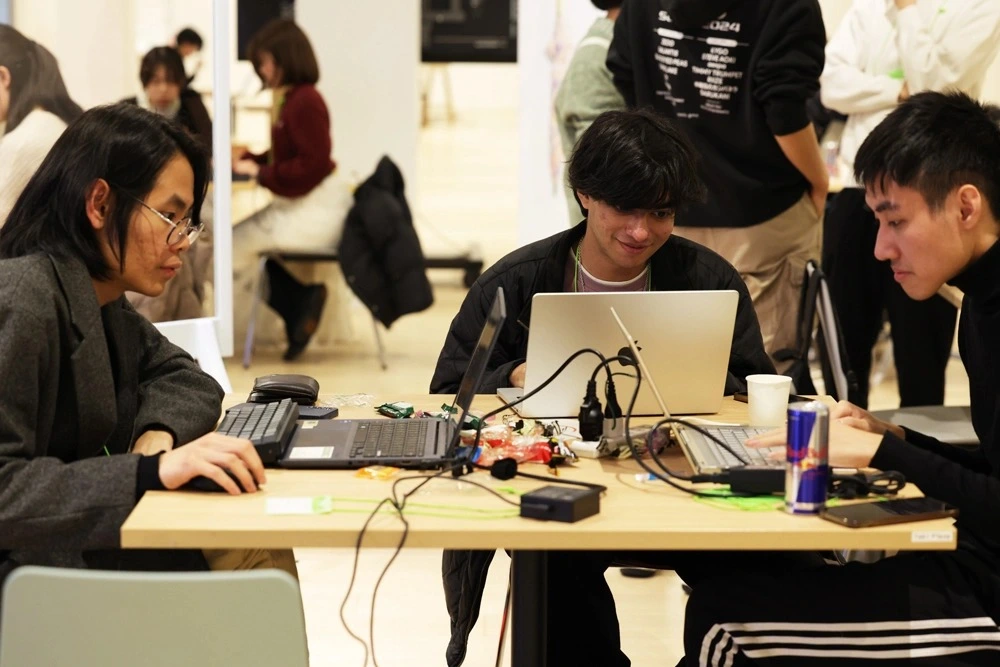
Hackathon teams getting to work after icebreaker
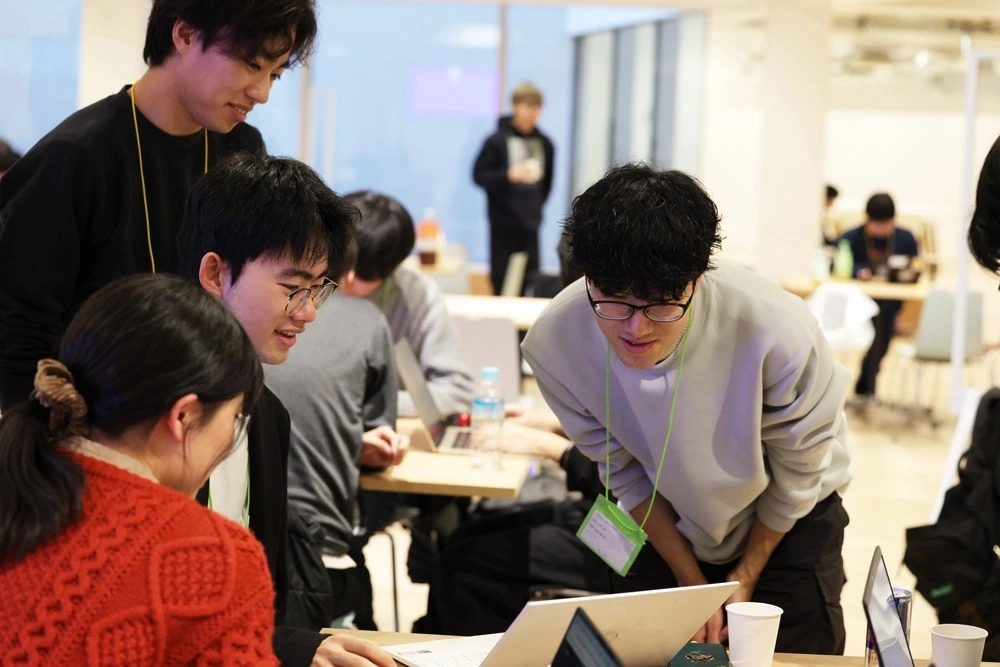
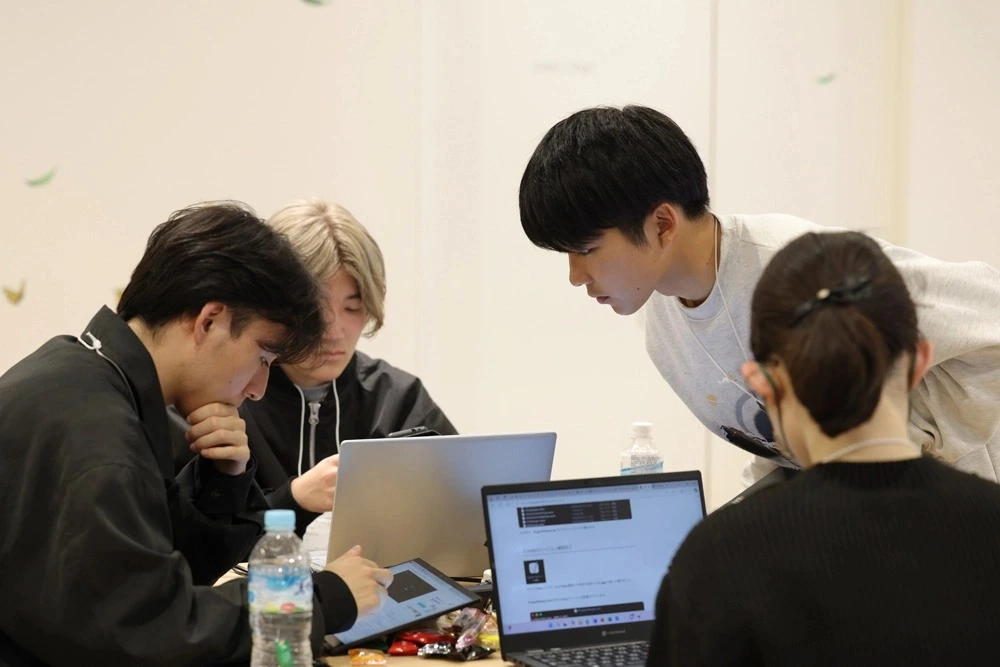
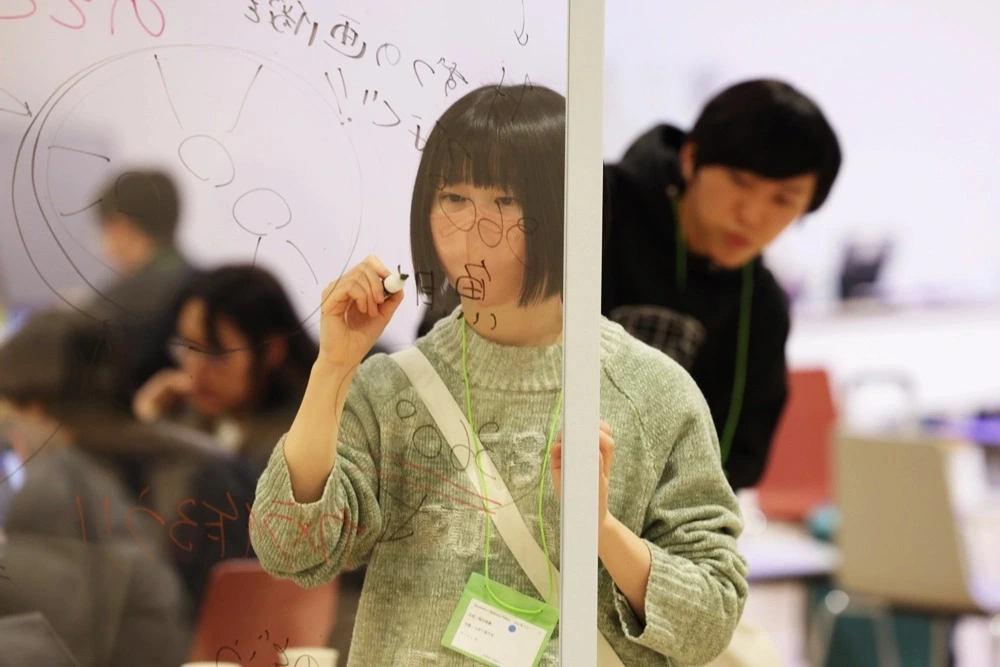
Teams getting advice from student mentors and participating company employees
Final presentations
A panel of judges, including professional engineers from companies such as fan-mily Inc., LY Corporation, Progate, Inc., Hack'z Inc., pixiv Inc., Miraisozo Investments Inc., and Lefixea Inc. evaluated the final presentations based on critical thinking, problem-solving, technical ability, presentation skills, and originality.
Out of the 12 teams, the Linkscope team took first prize while the Echolink team earned second prize.
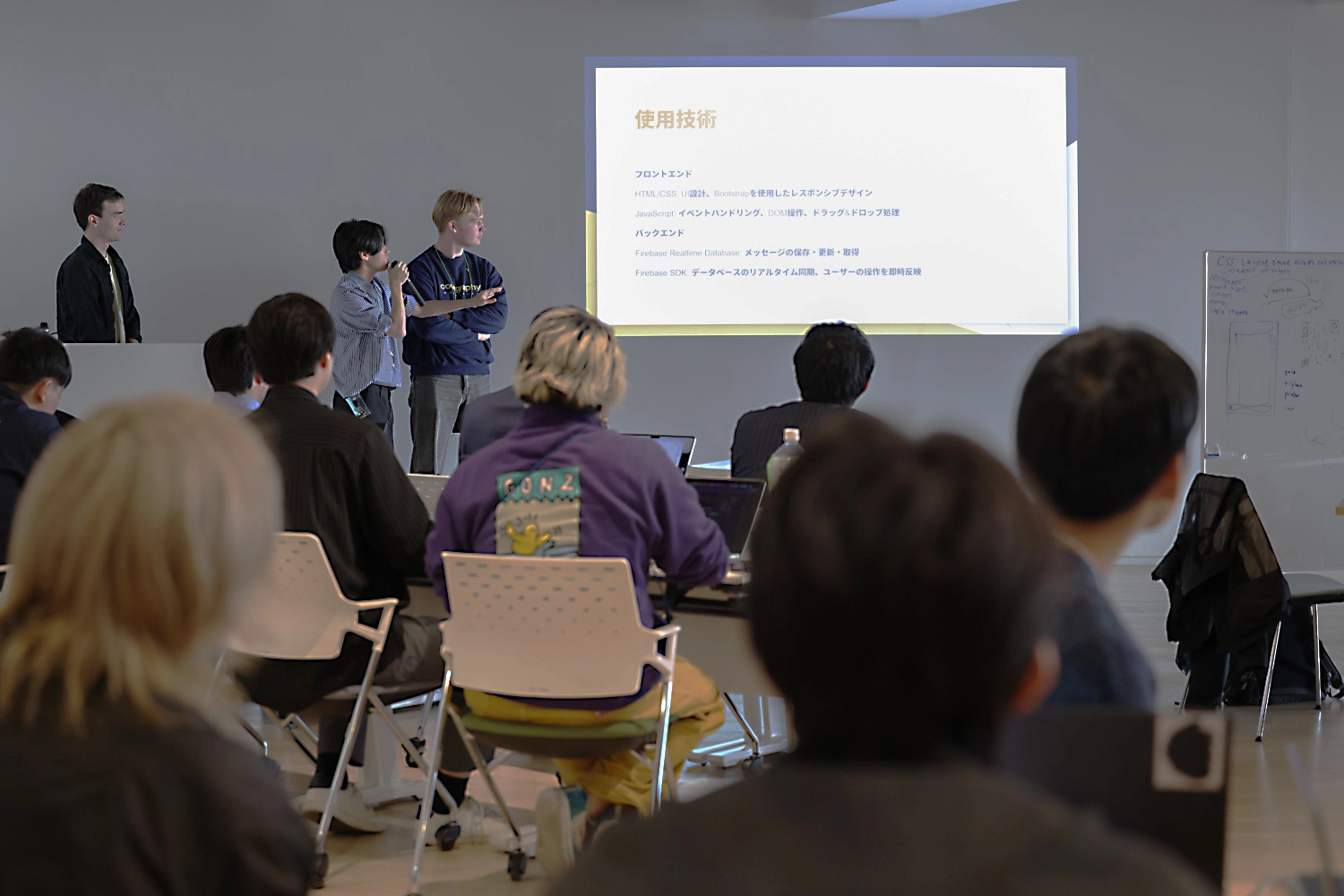
Winning team — Linkscope
Linkscope, the winning team, consisted of Naoki Nagata, a 2nd-year Computer Science student from Science Tokyo, and two Kyutech students — 3rd-year Computer Science and Electronics student Masamune Shinya and 3rd-year Systems Design and Informatics student Miyu Fukuda, both from the School of Computer Science and Systems Engineering.
Linkscope’s creation allows users to remotely view real-time scenes from each other’s campuses. At one location, a wide-angle image is captured using a fisheye lens attached to a smartphone, while at the other, a 360-degree panoramic image is viewed through a binocular-like smartphone device. This innovative feature enables users to experience campus life at partner universities — something normally out of reach.
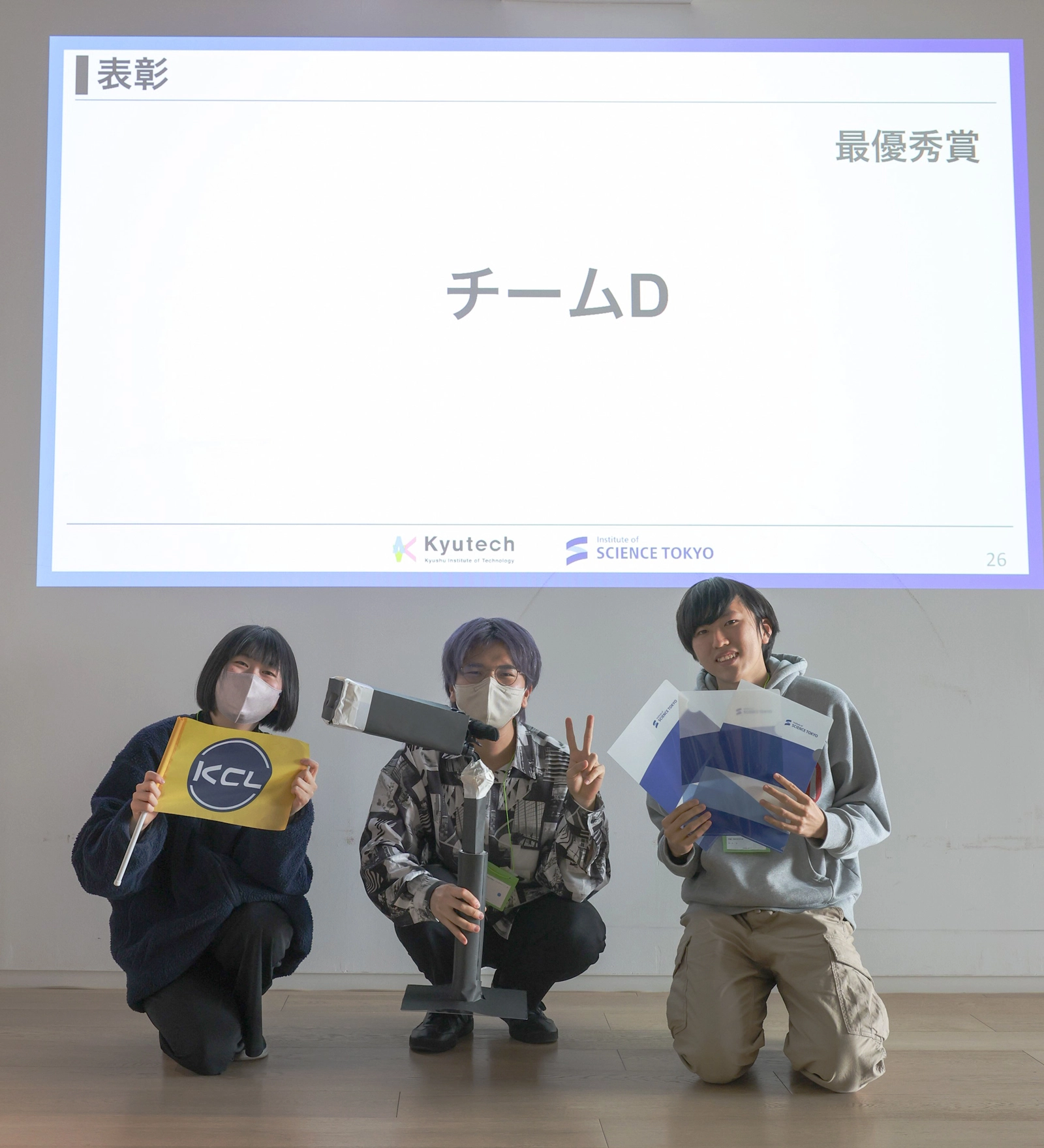
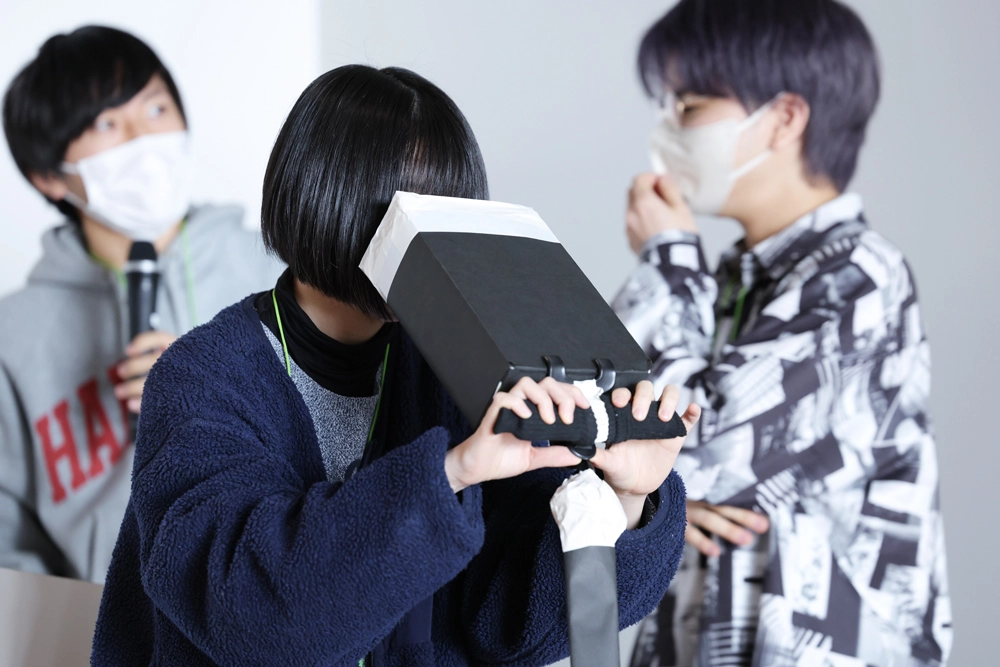
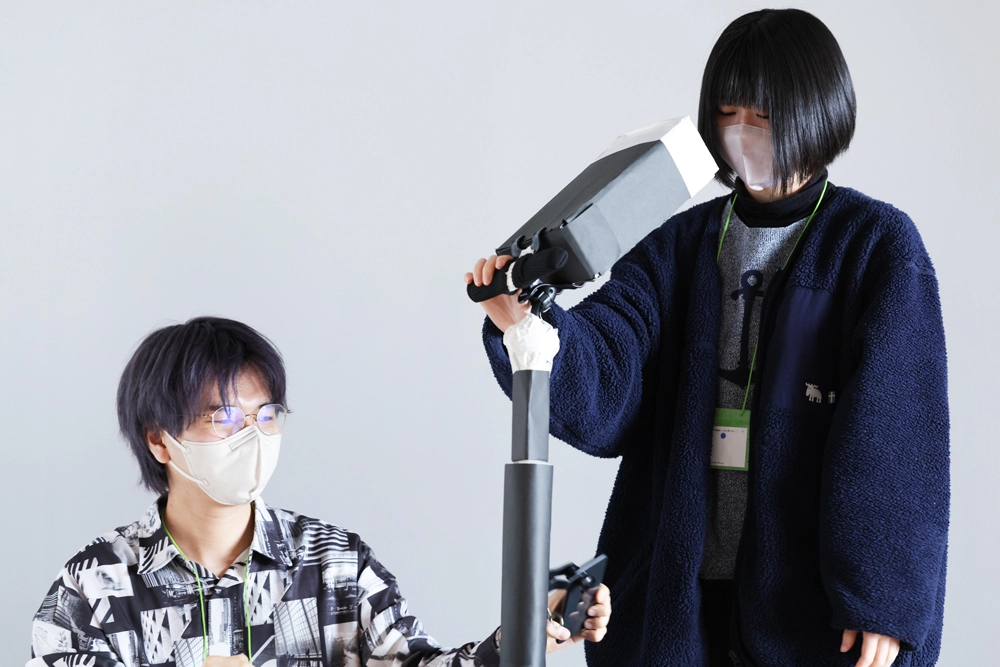
Second-place team — Echolink
Echolink, the runner-up team, consisted of four 2nd-year Transdisciplinary Science and Engineering from Science Tokyo — Eubin Baek, Kumkab Keeratisiwakul, Dang Hoang Binh, and Shambhava Sood. The team was made up entirely of international students.
Echolink’s creation is a pixel-art, inquiry-based role-playing game that recreates the real university campuses of Science Tokyo and Kyutech. Players navigate intricately designed maps, discovering trivia and hidden gems related to each university. Conversations with the quirky non-player characters (NPCs) that bring the world to life are full of personality and humorous dialogue that are sure to make players smile. The game provides a fun and immersive way to experience the two universities as if visiting in person.
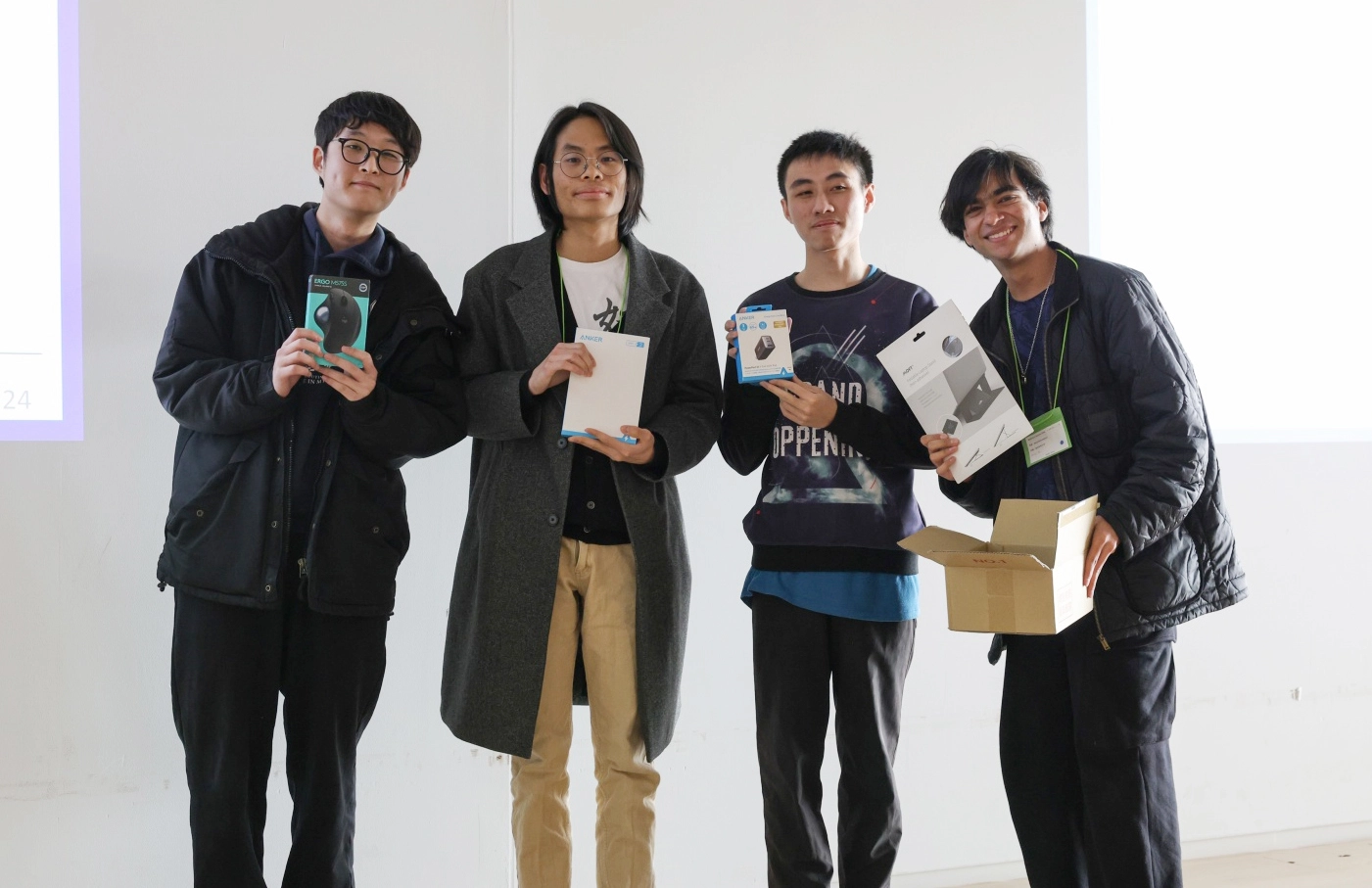
Closing ceremony
At the closing ceremony, Matsuda and professional engineers Masanobu Naruse and Takeru Yufune from Hack'z Inc. offered their final comments. Professor Tetsuji Okamura from Science Tokyo’s School of Engineering delivered the closing remarks to conclude the three-day event.
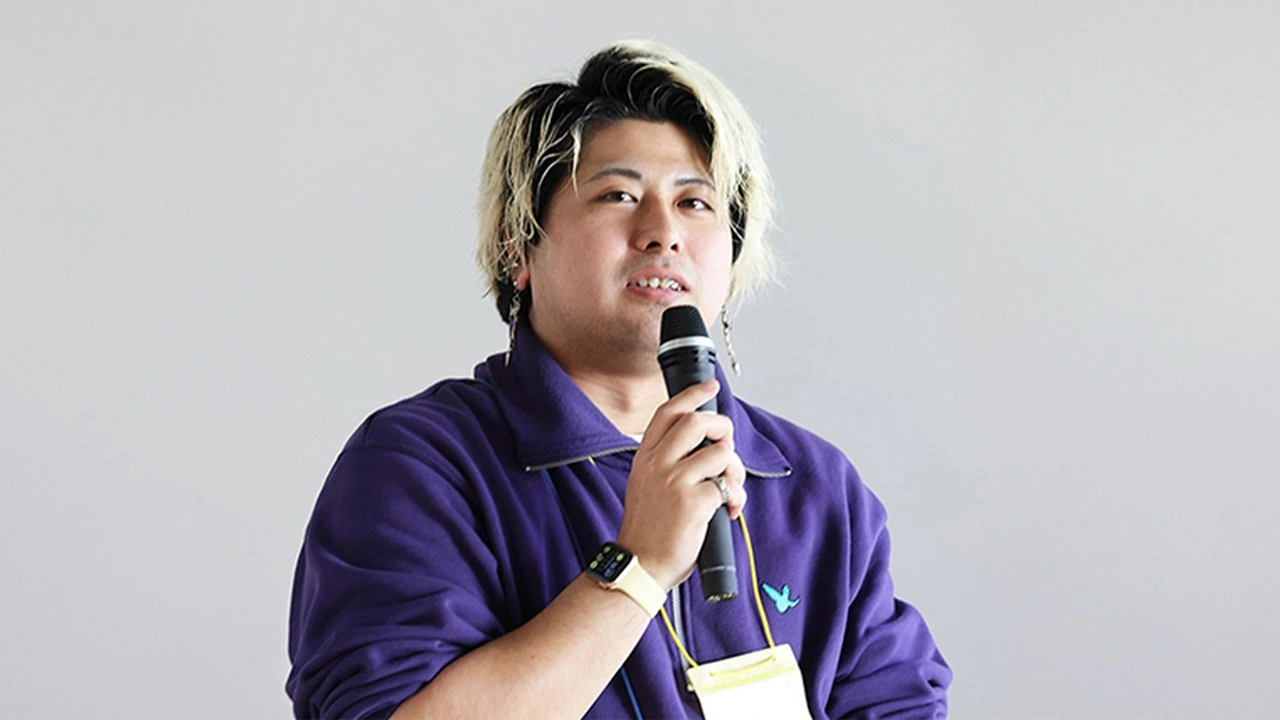
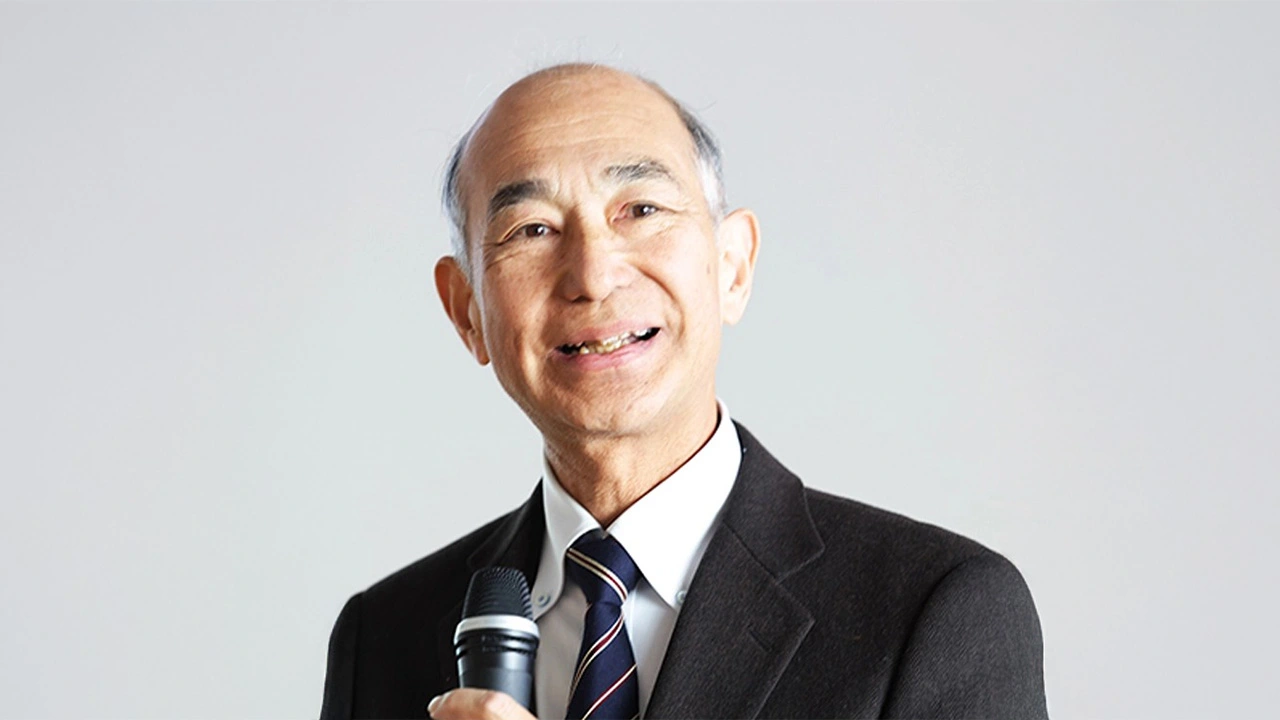
Science Tokyo and Kyutech plan to continue holding joint hackathons in the future.
Comments from participants
- It was my first hackathon, and I had a very fulfilling time. It was fun to figure out how to generate and implement interesting ideas from a given topic. Thank you!
- This was my first time participating in this event and my first time working on a team to build something — I had only worked alone before. It was a little daunting at first, but in the end, I developed great friendships and improved both my programming and communication skills.
- I learned how exciting and difficult it is to bring ideas to life within a limited time, and found interacting with Kyutech students both stimulating and inspiring — a valuable experience I will carry into the future.
- I had always been interested in programming and development, but never had the chance to try it, so this hackathon was a good experience for me. Thanks to the help of senior members, I was able to participate with confidence. Thank you.
- The hackathon itself was a good opportunity, but what stood out most was interacting with Kyutech students during the judging period. I rarely get to present work to people from other universities, so this was a valuable opportunity.
Comments from winning team member
Naoki Nagata
2nd year, Computer Science, Science Tokyo
I am thrilled that we won first prize! This would not have been possible without the active involvement of my teammates and the help of a large language model. Since we were a hybrid team, we were able to generate unique ideas. I think using the design-thinking framework I learned in class helped turn our creative ideas into a single, well-structured concept.
The theme of “Cross-Border and Exchange” inspired me to think about how to connect across physical distance. I figured that if there were a telescope, people would naturally want to peek through it to see another campus. That is how Linkscope began.
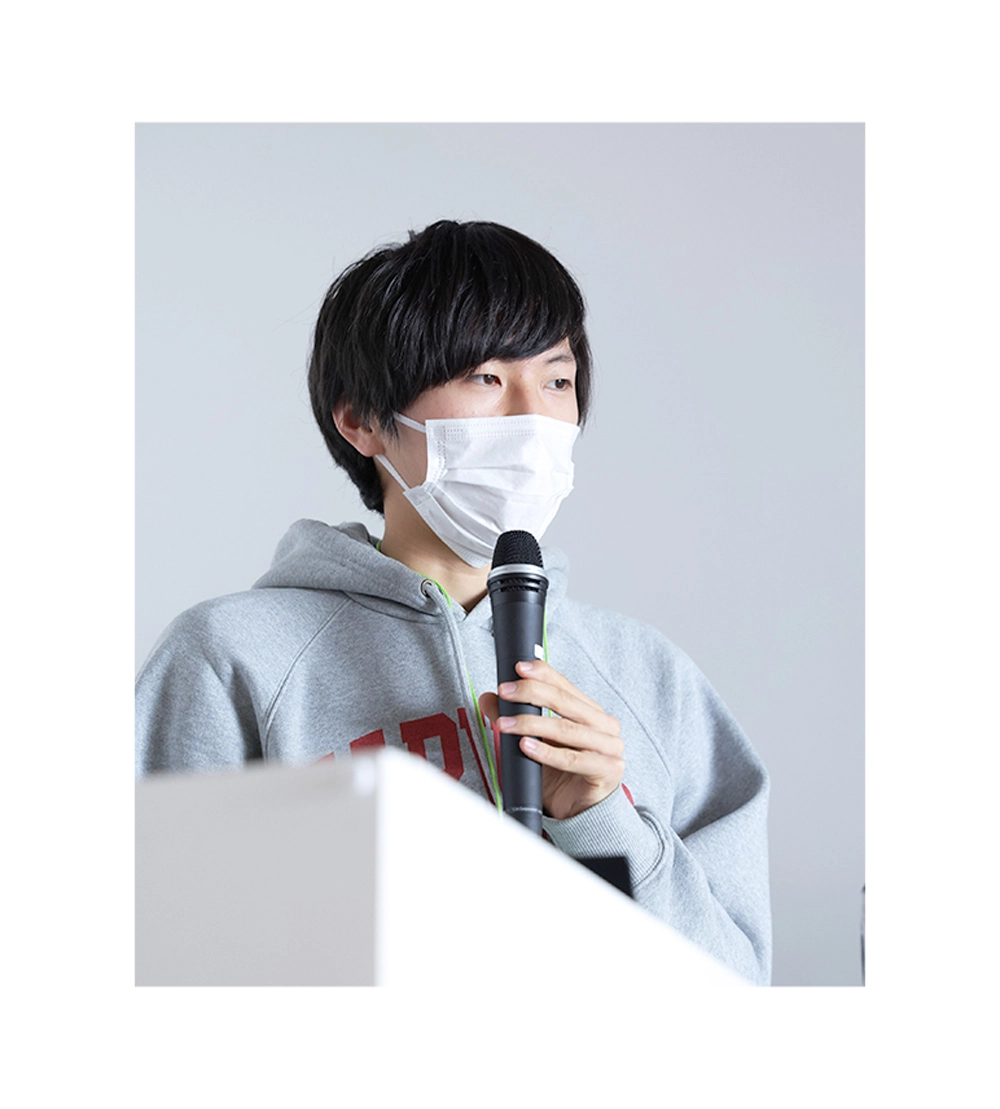
We also explored a technical challenge: capturing 360-degree images affordably. Since a telescope can show a full panoramic view, the camera needed to capture that as well. However, even the cheapest 360-degree cameras cost over JPY 10,000. So instead, we used a fisheye lens attached to a smartphone to shoot distorted images and converted them into panoramic views in real time.
Comments from student organizer
Tsuzumi Nakamura
3rd year, Transdisciplinary Science and Engineering, Science Tokyo
I am truly delighted that we were able to successfully hold this joint hackathon event between Kyutech and Science Tokyo. This year's theme was “Cross-Border and Exchange.” Our goal was to create works that would encourage interaction between the two institutes despite being geographically distant. Each team demonstrated a clear understanding of the theme and used their creativity and technical skills to produce impressive results. It was also memorable to see students engaging across university boundaries, especially during the social gathering.
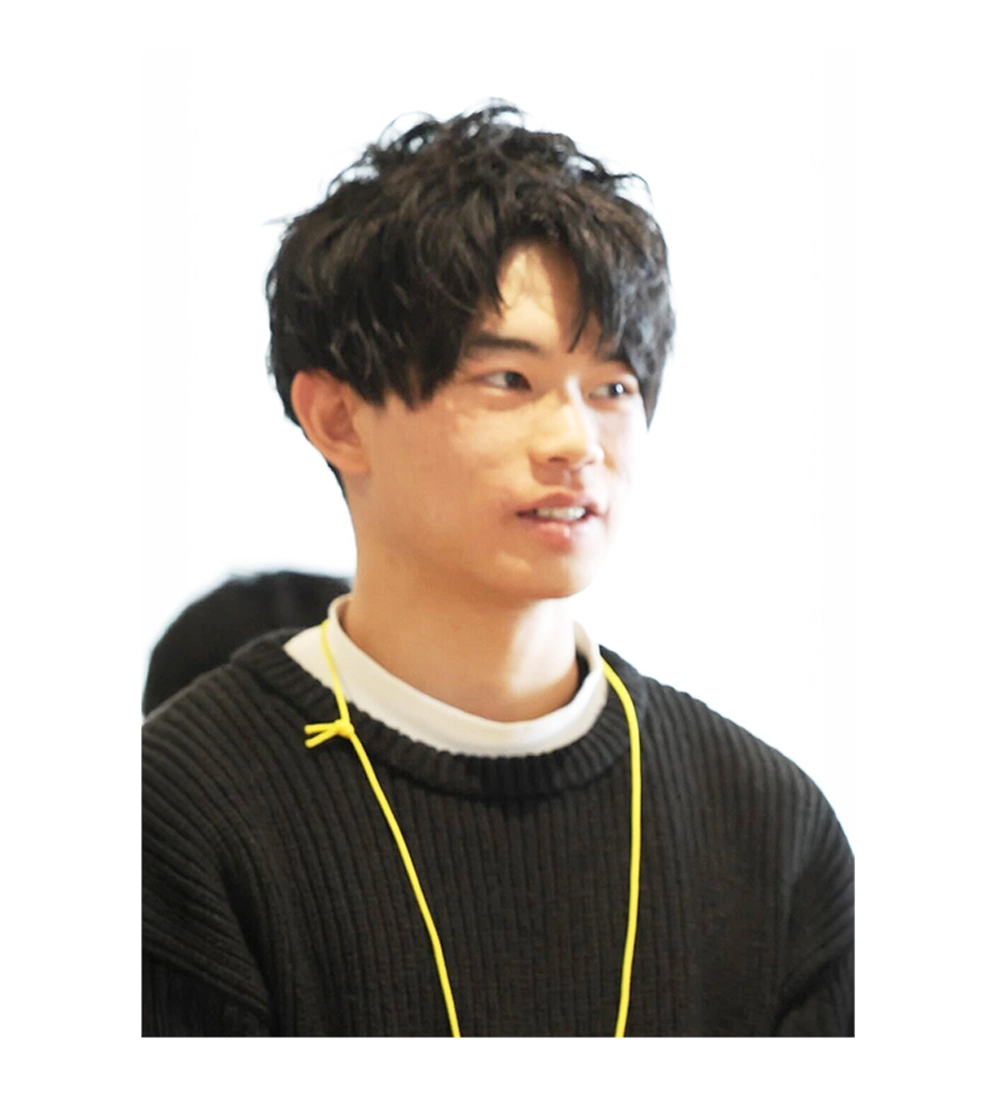
This was my first time managing an event of this scale, and it came with many challenges. In particular, coordinating with sponsor companies and another university required a lot of preparation and constant trial and error. Working through many conversations with stakeholders from different backgrounds gave me the valuable opportunity to hone my management skills and learn a great deal in the process.
Through this experience, I was reminded of the importance of diverse perspectives and approaches. As a student of the Department of Transdisciplinary Science and Engineering, I hope to continue tackling complex and seemingly unsolvable societal issues by taking a cross-disciplinary approach.
Finally, I would like to express my sincere gratitude to all the sponsors who supported this event, the members of KCL who co-organized it with us, the enthusiastic participants, and everyone who contributed to making this event possible.
- All organization names, job titles, affiliations, and academic years are as of the time of the event.
Related articles
Updated history
- This article was updated on June 12, 2025
Contact
Student Success Support Section, Student Support Center, Ookayama Campus
Tel +81-3-5734-7629
Email siengp@jim.titech.ac.jp